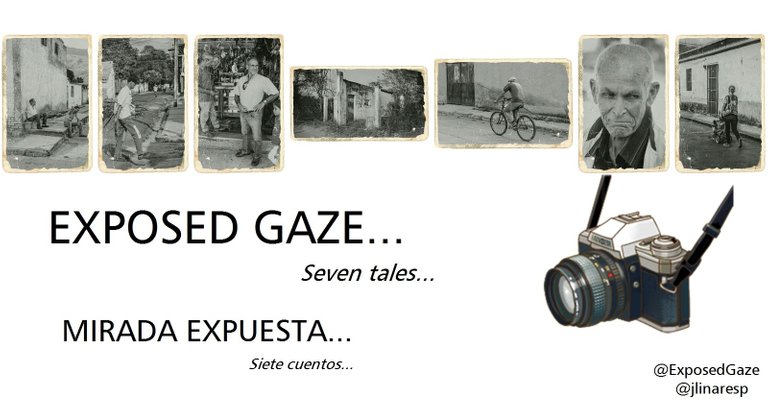
Hello dear #Hive friends!... Welcome to another edition on my street photography series... Today I "feel the wonderful need" to write some stories along with my photos, so that's why I have placed that "Seven Stories" tagline in the title of this post.... Here, in the streets of my town, the truth, the fable, and the popular lore are often mixed... That is a charming thing for those of us who love to write from time to time!
¡Hola queridos amigos de #Hive!... Bienvenidos a otra edición de mi series de fotografías callejeras... Hoy "siento la maravillosa necesidad" de escribir algunas historias junto con mis fotos, así que por eso he puesto esa coletilla "Siete Cuentos" en el título de esta publicación... Aquí, en las calles de mi pueblo, a menudo se mezclan la verdad, la fábula y el acervo popular... ¡Es algo encantador para los que nos gusta escribir de vez en cuando!
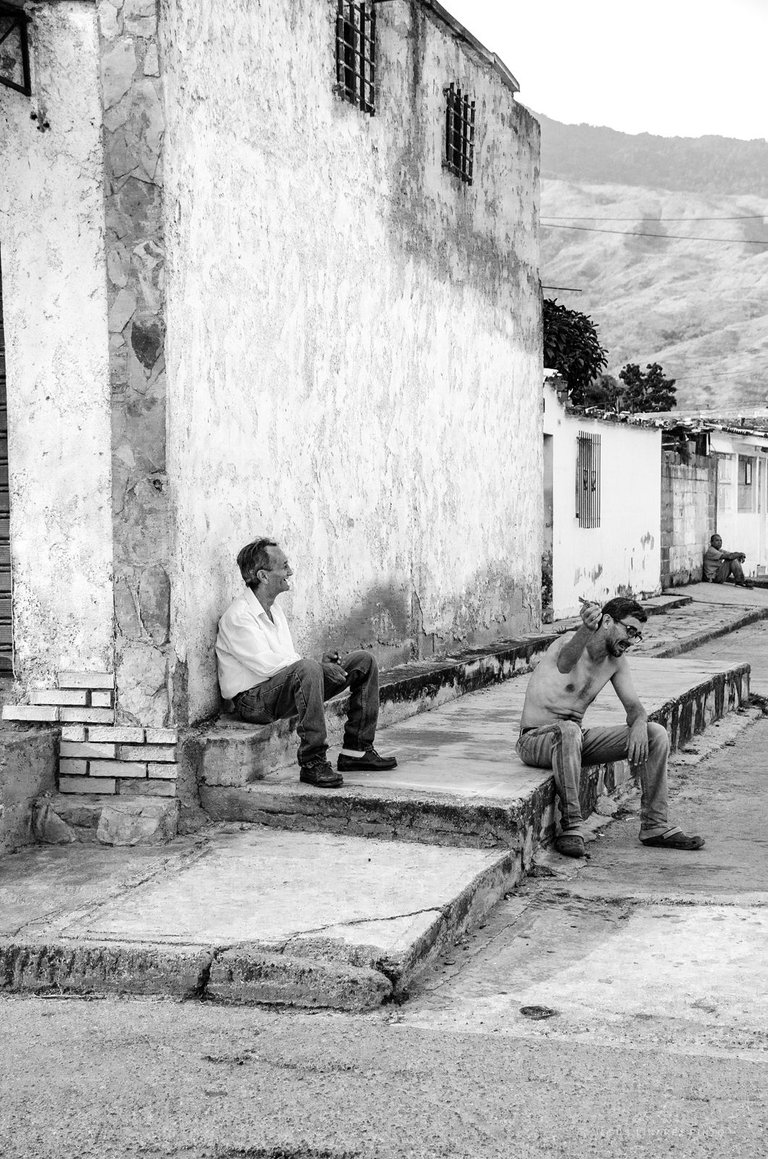
"What day is today?" / "¿Que día es hoy?"
Thursday afternoon
when the sun is almost down
Evelio, Felix and Luis
talk about many things and about nothing
there, sitting in the streets
without thinking too much about anything
then Felix asks:
And what day is today Evelio
And he answers:
In the morning it was Thursday, I'm sure,
but now I don't know what day it is,
because since we have nothing to do...
Maybe it's still Sunday!
El jueves por la tarde
cuando el sol casi se está yendo
Evelio, Felix y Luis
hablan de muchas cosas y de ninguna,
allí sentados en la calles
sin pensar demasiado en nada
entonces Felix pregunta:
¿Y que día es hoy Evelio?
Y este le responde:
En la mañana era jueves, estoy seguro,
pero ahora no sé que día es,
porque como estamos sin nada que hacer...
¡Quizás y sea aún Domingo!
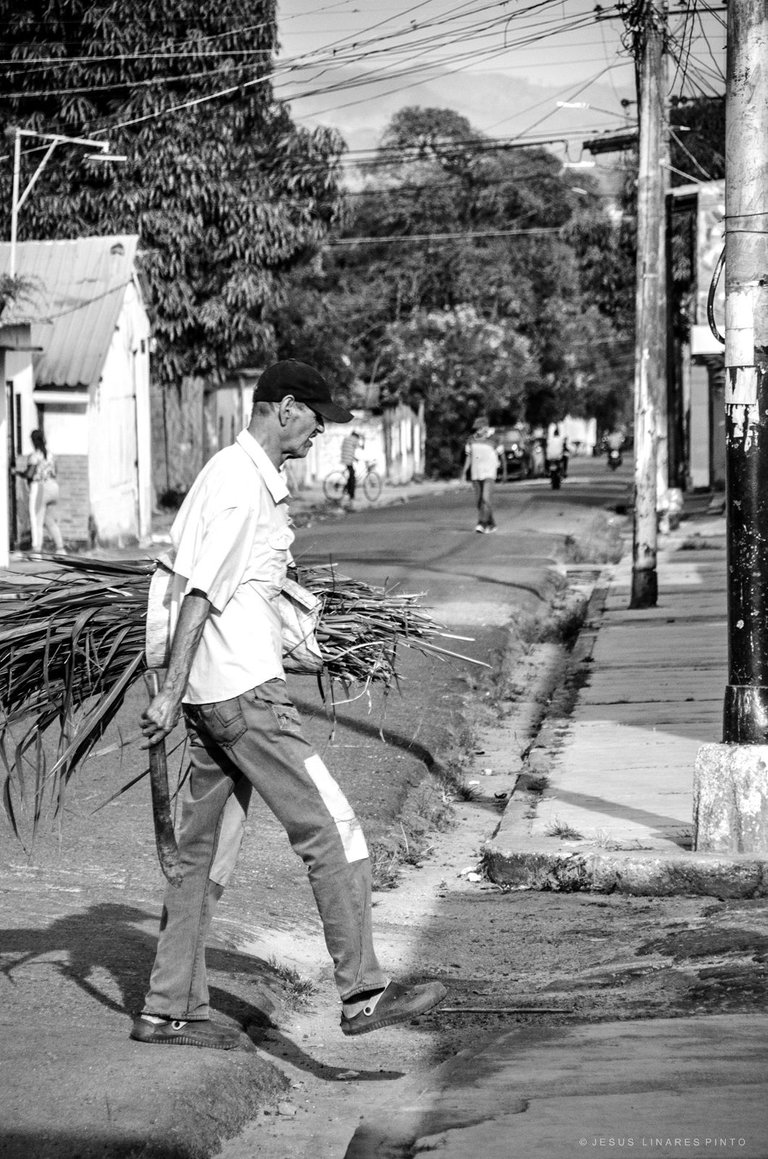
"Leonte" / "Leonte"
Seeing Leonte on the streets
is now as easy
as seeing a unicorn dancing in the streets...
Now, for about 20 years,
Leonte only appears when he goes out
to cut straw for the rabbits that he raises
and that only happens in summer, because
in the winter he makes do with the straw in his yard.
But it wasn't always like that, before, quite a lot of times.
Leonte and Sara, that was his wife's name,
a beautiful lady with green eyes and a slow pace
They sold candies and soft drinks in their kiosk.
one that was on the main street,
right in front of the plaza...
That was until the day Sara got on the car....
that of the young and cheerful vendor who brought the candies on Fridays, to sell them on the weekend.
Leonte says, that not even Sara said goodbye...
Ver a Leonte por las calles
es ahora cosa tan fácil
como ver un unicornio bailando en ellas...
Ahora, desde hace como 20 años,
Leonte solo aparece cuando sale
a cortar paja para los conejos que cría
y eso solo sucede en verano, porque
en inverno resuelve con la paja de su patio.
Pero no siempre fue así, antes, bastante antes
Leonte y Sara, que así se llamaba su esposa,
una señora hermosa de ojos verdes y paso lento.
Vendían caramelos y refrescos en su kiosko,
uno que estaba en la calle principal,
justo frente a la plaza...
Eso fue hasta que un día Sara se montó en el auto,
el del vendedor joven y alegre que traía los caramelos los viernes, para venderlos el fin de semanas...
Dice Leonte, que ni siquiera adiós dijo Sara.
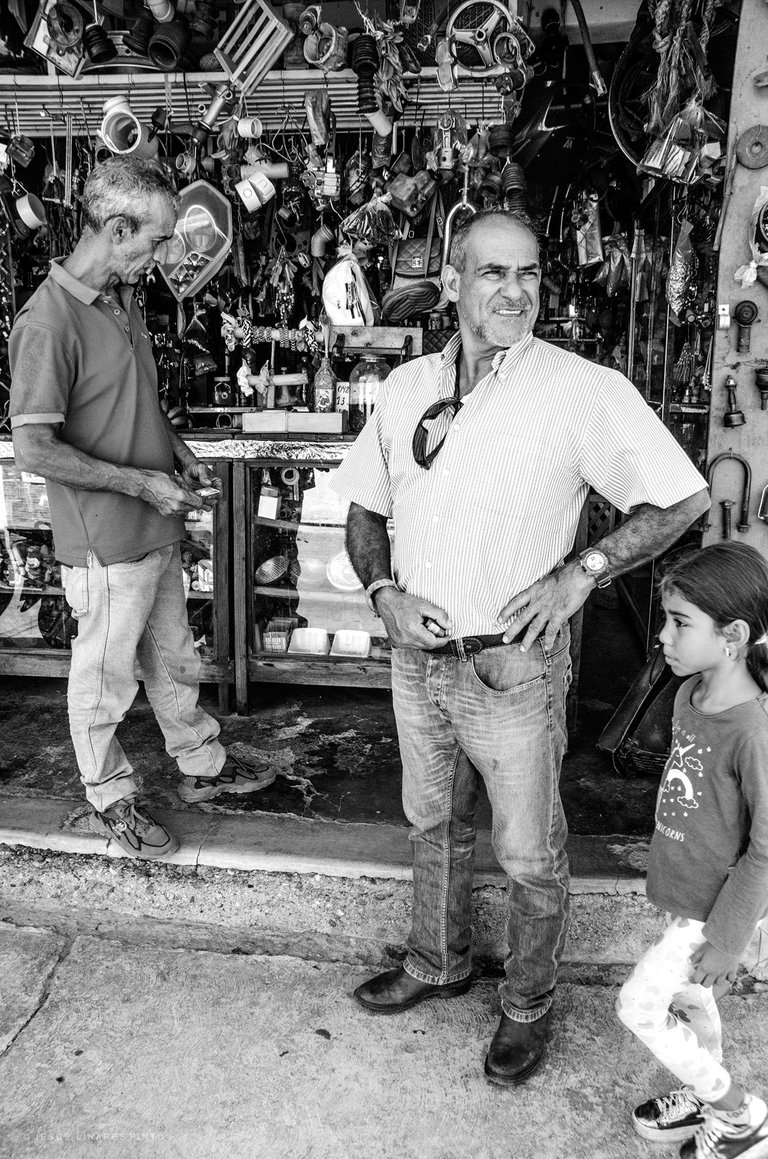
"Miguel's kiosk" / "La Taguara de Miguel"
It was the 90's, a handsome and cheerful miguel,
came on a motorcycle from a distant city,
they say he left behind an old woman,
who had him scrubbing floors and washing cars,
in exchange for paying for his studies.
Then Miguel arrived and set out,
opened a small kiosk and called it
"La taguara mágica" (The Magic Taguara).
And there he sold cigars, twigs and spices,
He also cast the tarot and read the snails...
That is until one day a German went to prescribe for himself,
they say he had a headache...
Miguél I gave him a liquid to rub his forehead,
Some saffron rum, menthols, camphor, mints and alcohole.
aged with flowers from the mountains.
But poor Herman (that was the German's name),
He understood that he had to "drink" the whole pot.
The story is long, but it is said that, Herman
was saved because he threw up for two days and had time
to get to Caracas, for the corresponding washing of his guts...
Since then Miguel sells other things there in his kiosk, but no more medicines!
Eran los años 90, un Miguel mozo y alegre,
se vino en moto desde una ciudad lejana,
dicen que dejó atrás a una mujer vieja,
que lo tenía fregando pisos y lavando carros,
a cambio de pagarle sus estudios.
Entonces Miguel llegó y emprendió,
abrió un pequeño kiosko y lo llamó
"La taguara mágica"
Y allí vendía tabacos, ramas y menjurjes,
también echaba el tarot y leía los caracoles...
Eso hasta que un día fue un Alemán a recetarse,
dicen que le dolía la cabeza...
Miguél le dio un liquido para se friccionase la frente,
Algo ron azafrán, mentoles, alcanfor, mentas y alcoholes
añejados con flores de las montañas...
Pero el pobre Herman (qué así se llamaba el Alemán),
¡Entendió que tenía que "tomarse" el pote entero!...
El cuento es largo, pero se cuenta que, Herman
se salvó porque vomitó dos días y tuvo tiempo
de llegar a Caracas, por el correspondiente lavado de tripas...
¡Desde entonces Miguel vende otras cosas allí en si kiosko, pero ya no medicinas!
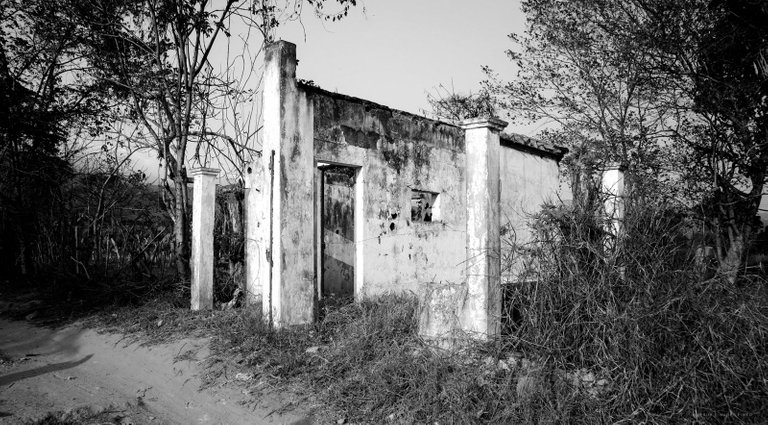
"The old Ranch office" / "La Oficina de la vieja Hacienda"
There, 30 years ago, was the small office,
the same one where Don Pastor was in charge and caretaker,
years of abundance, and through the door came and went the trucks loaded with oranges
trucks loaded with oranges and donkeys with coffee came and went through the door,
the caporales on horseback, and the workers would punch in and out,
once on the way in and once on the way out, because they had lunch inside
and passed it around with milk and coffee,
that the same women in the kitchen gave them.
But one day, an unfortunate day, the workers came up with something, something of expropriating, something of expropriating, something of expropriating,
something of expropriation, something of revolution, something of a certain people,
one that now had to be the owner... And the most experienced
went to the capital and brought someone with them, some deputies, prosecutors and even military
deputies, prosecutors and even military.... That was how it began
what one day ended in something they called "invasion" and then,
and then, as the years went by, it became "sadness and dead lands".
Allí, 30 años atrás, estaba la pequeña oficina,
la misma donde Don Pastor ejercía de encargado y cuidador,
eran años de abundancia, y por la puerta iban y venían
los camiones cargados de naranjas, los burros con café,
los caporales a caballo y los obreros marcaban tarjeta,
una vez al entrar y otra al salir, porque el almuerzo
lo hacían adentro y lo pasaban con leche y café,
que las mismas mujeres de la cocina le regalaban.
Pero un día, uno infausto, a los obreros se les ocurrió algo,
algo de expropiar, algo de revolución, algo de un tal pueblo,
uno que tenía que ser ahora el dueño... Y los mas avezados
se fueron a la capital y se trajeron a alguien, unos tales
diputados, fiscales y hasta militares... Así fue como comenzó
lo que un día terminó en algo que llamaron "invasión" y luego,
con el pasar de los años, se volvió "tristeza y tierras muertas".
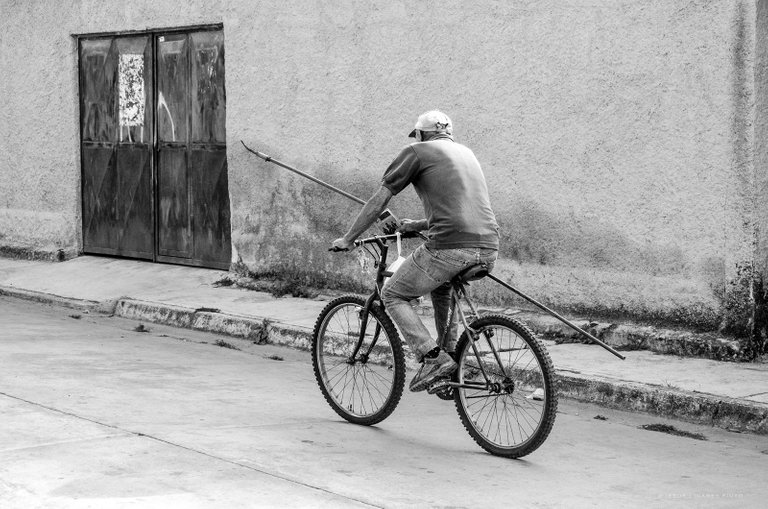
"A Quixote on a bicycle?" / ¿Un Quijote en bicicleta?
Well, maybe not as romantic as Cervantes's,
Nor does Sancho have to serve as a wise and sane squire,
but Jesus, the old one, not the new one... he goes back and forth through the town,
riding his wheeled Rocinante and loud and squealing
for neighing that he does not do ... Of course, Jesus comes and brings his novels
always in his hands, not to read them because he already read them all,
but to use them as a script... That's why, that's why he carries that spear,
so as not to scare off the dogs that chase him, as the boys say
of the town... No, they are used for their fights, against dragons,
enormous dragons of times past, of the absence of the dead son,
home alone and old age unstoppable.
Bien, puede que no tan romántico como el de Cervantes,
ni tenga un Sancho que le sirva de escudero sabio y cuerdo,
pero Jesús, el viejo, no el nuevo... Va y viene por el pueblo,
montado en su Rocinante de ruedas y grandes y chillidos
por relinche que no hace... Eso sí, Jesús lle y trae sus novelas
siempre en las manos, no para leerlas pues ya las leyó todas,
sino para usarlas a manera de guión... Por eso, por eso lleva esa lanza,
no para espantar los perros que lo persiguen, como dicen los muchachos
del pueblo... No, le sirven para sus luchas, contra dragones,
enormes dragones de tiempos pasados, de ausencias del hijo muerto,
de casa sola y de vejez imparable.
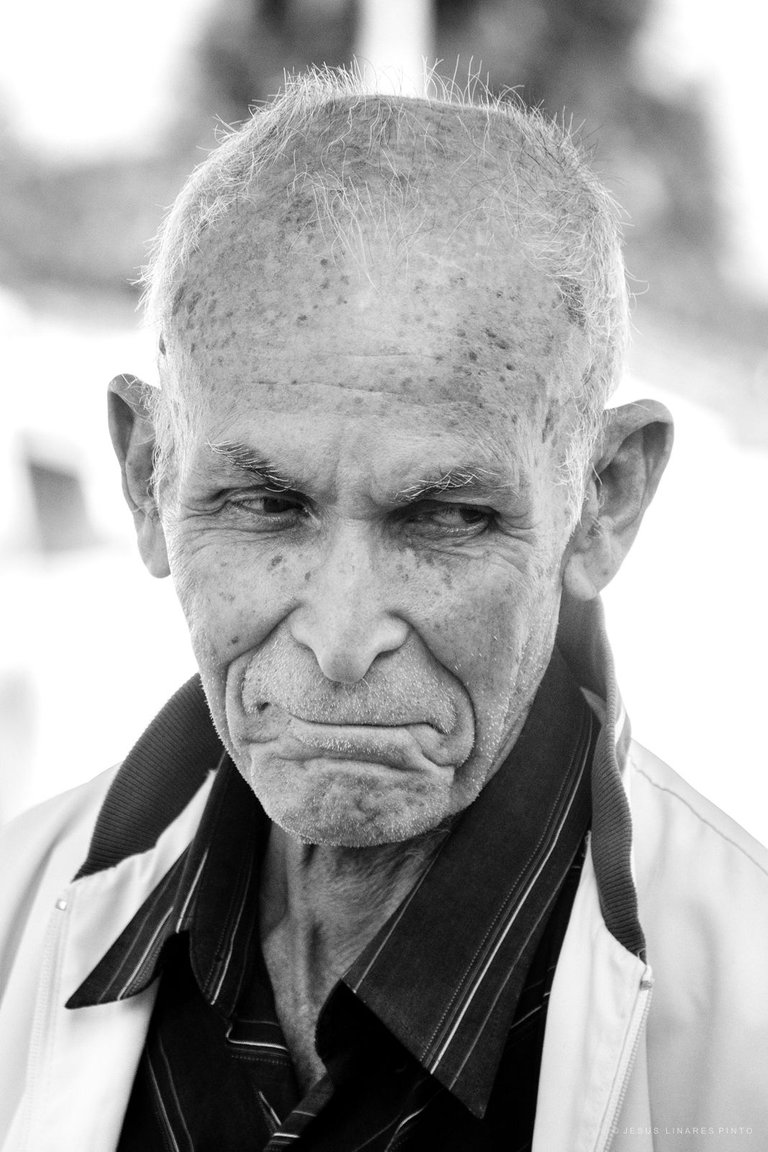
"Francisco the deacon" / "Francisco el diácono"
Some say that there are 80, others 90 and even 100 years that Francis has in this world...
Francisco has been in this world... However, the truth is that,
it's like "Two and a half meters of pure old man", that's what the boys say,
between play and respect for the huge figure, the one that walks in the afternoons,
with a bible under his arm, through the streets that saw him as a child.
When Francisco was 30, back in the times of the other dictatorship, the one of the 50s...,
that of the 50's... Some say that he was a military man and others say that he belonged to a certain "National Security".... But there was a day when he arrived, went into the church, prayed without eating, knelt down without stopping, cried without breathing and then or rather "since then" he has been a deacon.... He brings communion, imposes the oils, embraces the sick and even buries them.... He says that he burned his uniform twice, to make sure that not even ashes were left.
Unos dicen que son 80, otros 90 y hasta 100 los años
que tiene Francisco en este mundo... Sin embargo, lo cierto es que,
son como "Dos metros y medio de puro viejo", así dicen los muchachos,
entre juego y respeto por la enrome figura, esa que camina en las tardes,
con la biblia bajo el brazo, por las calles que le vieron Niño.
Cuando Francisco tenía 30, allá por los tiempos de la otra dictadura,
la de los 50... A según y que era militar y otros dicen que de una tal "Seguridad Nacional"... Pero hubo un día en el que llegó, se metió en la iglesia, rezó sin comer, se hincó si pararse, lloró sin respirar y entonces o mejor dicho "desde entonces" es diácono... Lleva la comunión, impone los oleos, abraza a los enfermos y hasta los entierra... Dice que su uniforme lo quemó dos veces, para asegurase de que ni cenizas quedaran.
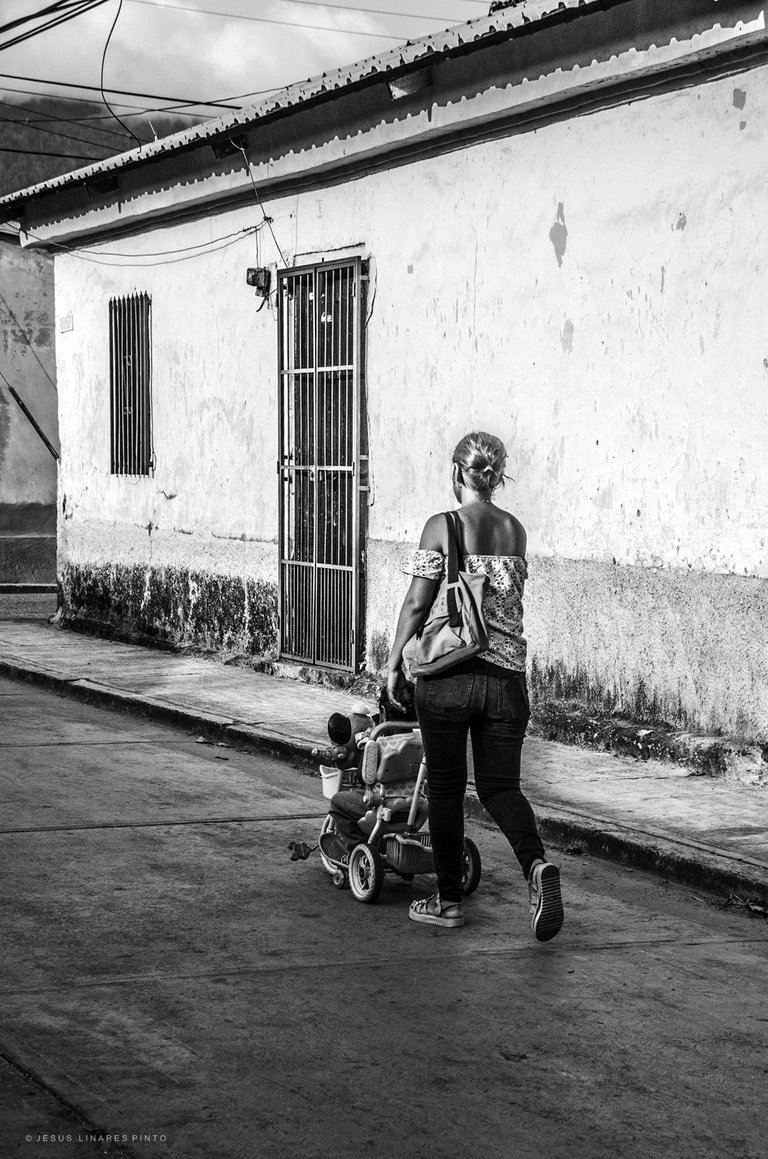
"The Girl with the Baby" / "La niña con el bebé"
And I ask myself: And isn't that Rosita?
The little girl who lives a street and a half away from the house,
the little girl who played with her rag doll,
the little girl with the candid smile and the cheerful voice...
What happened to her?... These days I think I saw her playing!
She was there with her little dog, with her grandmother and her clouds of joy,
there, a street and a half from my house...
That was years ago, answers the voice of Señora Carmen next to me,
the only sane one in this street apparently, because as far as I'm concerned, Rosita is a girl who doesn't seem to be able to have a child any more.
Y yo me pregunto: ¿Y no es esa Rosita?
La niña que vive a calle y media de la casa,
la niña que jugaba con su muñeca de trapos,
la niña de sonrisa cándida y voz alegre...
¿Que le ha pasado?... ¡En estos días creo haberla visto jugando!
Estaba allí con su perrito, con su abuela y sus nubes de alegrias,
allí, a calle y media de mi casa...
Eso fue hace años, contesta a mi lado la vos de la Señora Carmen,
la única cuerda de esta calle por lo visto, por que en cuanto a mi respecta, Rosita es una niña que no parece poder tener ya un niño.
And as usual, "This is my entry to today's #monomad challenge." Thank you all very much for stopping by and appreciate, hope to see you soon again, you are very much loved, a hug to all and happy week.
Y como suele ser costumbre: "Esta es mi entrada al reto #monomad de hoy"... Muchas gracias a todos por pasar por aquí y apreciar, espero vernos pronto nuevamente, se les quiere mucho, un abrazo a todos y feliz semana.
"We make photographs to understand what our lives mean to ourselves." - Ralph Hattersley.
"Hacemos fotografías para comprender lo que nuestras vidas significan para nosotros mismos." - Ralph Hattersley.

Cámara: Nikon D7000 | Objetivo: Sigma 18-200mm f3.5-6.3 II DC OS HSM
Montalbán, Carabobo, Venezuela.
